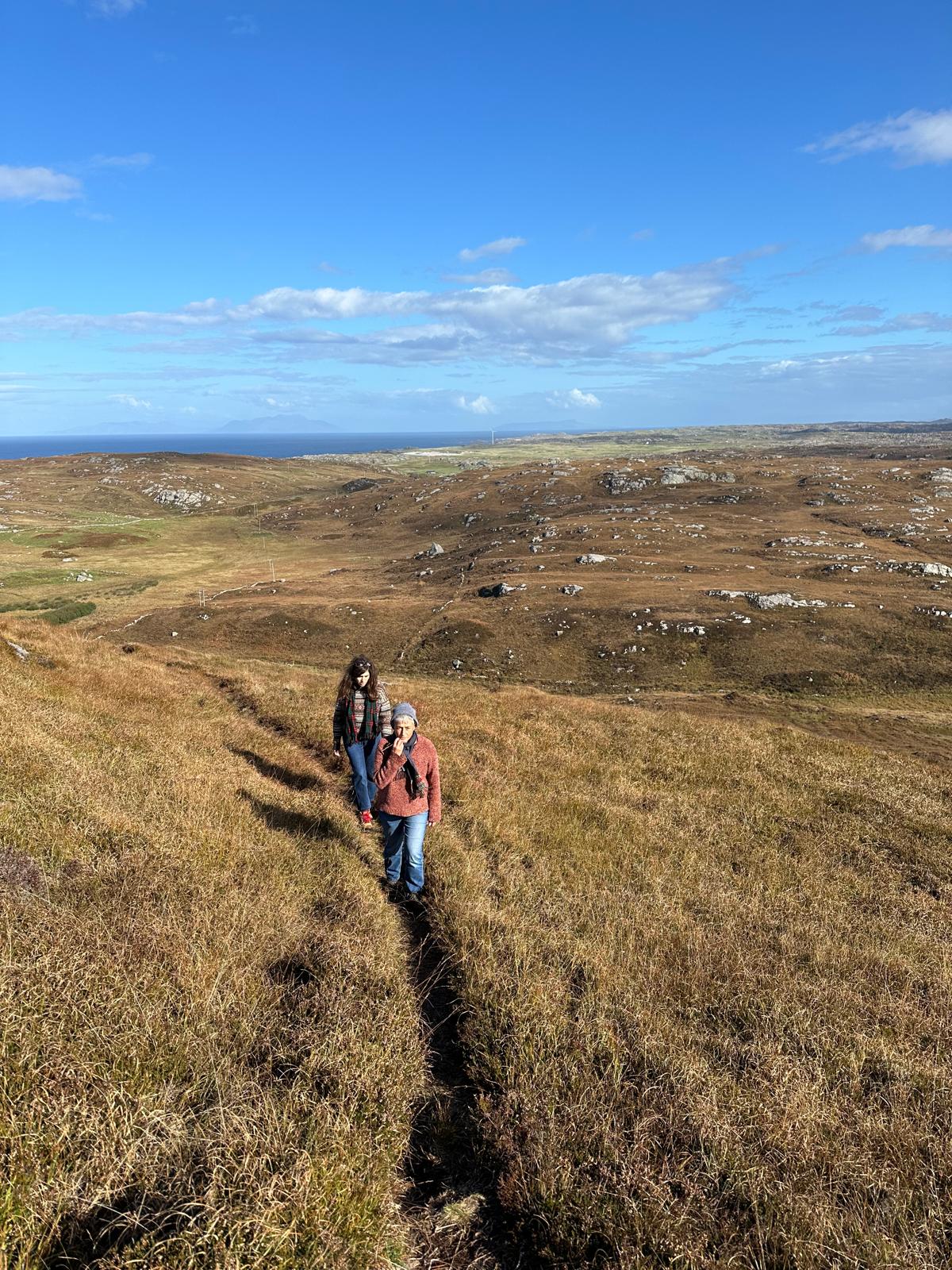
Breachacha Embrace Program 2024
The topic of the residency lies in the combination of artistic, scientific and nutritive practices in order to promote other ways of eating and treating ourselves in a more reciprocal relationship between the human and non-human.
A text by Emanuele Coccia is currently guiding us in the transposition of his theory to the Isle of Coll:
“Redrawing cities from our kitchens: such a proposal may seem extremely trivial and even vulgar. Yet the kitchen is the place where we show that the city is not just a collection of humans. As William Cronon and Carolyn Steele have shown, from the point of view of the kitchen, the city has different boundaries from what we imagine: all the non-humans we usually exclude must be part of it. Without wheat, corn or rice, without apple trees, pigs, cows or lambs, human cities are impossible. It is mainly non-humans who make our cities habitable. It’s time to give each of them citizenship. Freeing the home from patriarchy and architecture also means starting to think that the city is not the home of men. We are used to imagining that since all non-humans have a home away from the city, in ‘wild’ spaces, cities are the legitimate space for human settlement.”
“We therefore forget that every city is the result of the colonization of a space occupied by other living beings and a consequent genocide that has forced other species (with a few rare exceptions, dogs, cats, mice and certain ornamental plants) to settle elsewhere. A kitchen is, after all, the black hole of our homes, the place where their monastic essence is reversed into spaces of mixing: the boundaries between things and people are suspended and the opposition between humans and non-humans is overturned into a festive fusion. It will always be impossible to be a monk in a kitchen. Seeing the home and the city as great kitchens means overturning the patriarchal relationship into a space of care, not just food. The act of cooking is only the basic form of the act of caring: the form in which it is impossible to separate the care of oneself from that of others. The home is simply the place where you take care of something and someone.” Emanuele Coccia
What does this mean with regard to island life in the Hebrides?
HEADER IMAGE
Aurora Borealis over Breachacha Castle
Summer Residencies: A CULINARY JOURNEY THROUGH TOMORROW
In collaboration with BARBARA PAYNE & friends on the Isle of Coll.
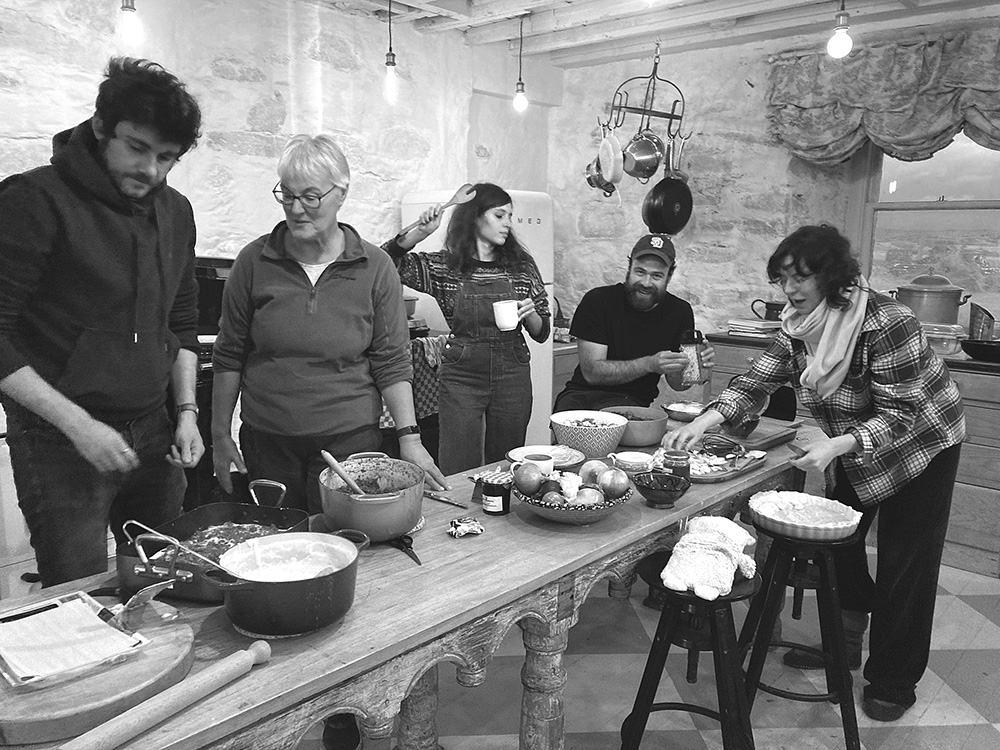
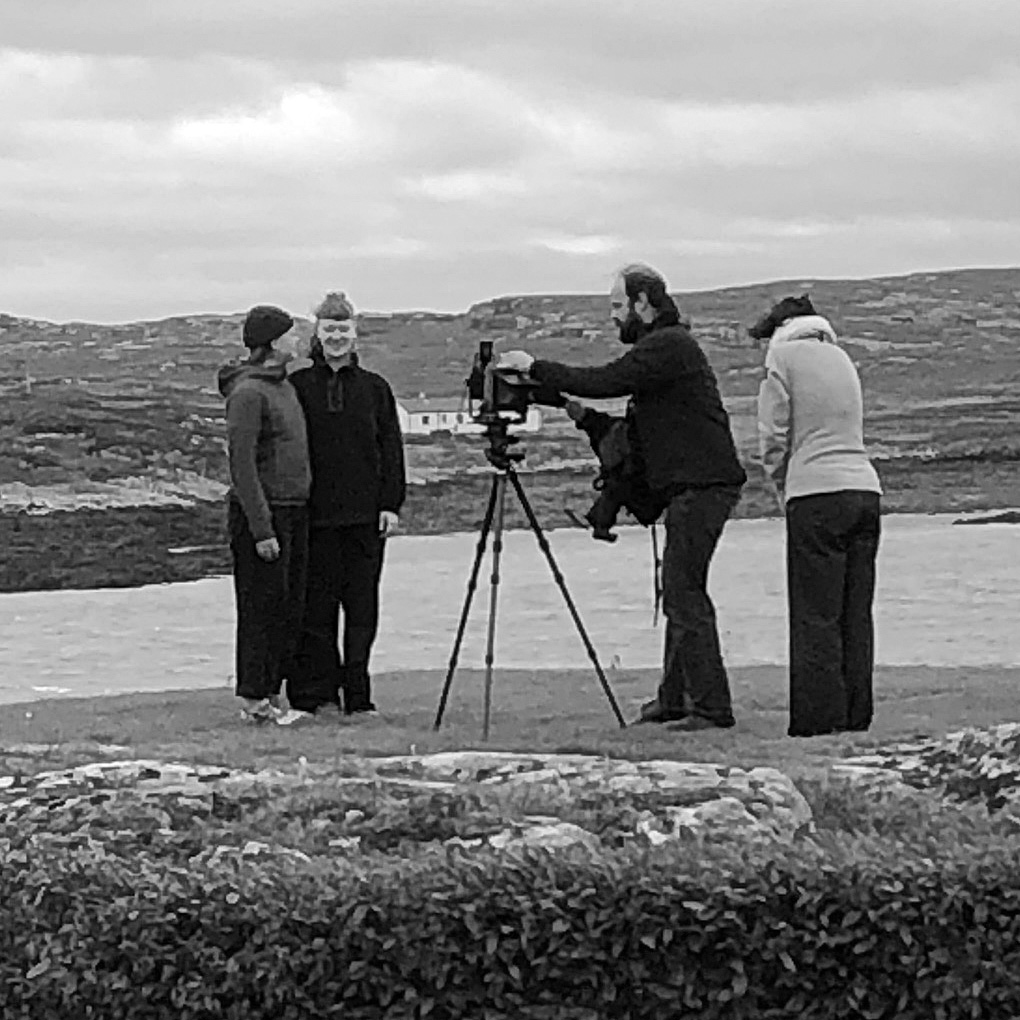
Romain Cavallin is a freelance photographer. Though his work focuses mainly on industrialised areas, he considers: “The idea of the 2024 Embrace Space project seems very interesting to me, and the wonderful text by Emanuele Coccia gives us a better understanding of the question to be researched. I am starting to think about appropriate ways to deal with this subject in photography.
I find the contextualisation of this theme from a territorial and insular point of view particularly appealing.”
“During my stay on the Isle of Coll, I am eager to discover the stories and traditions that have shaped this island and the imagination of its people. I want to meet with the local people, share their experiences and their landscape, and bear witness to their relationship with their environment. Through my photographs I want to discover the way in which the non-human and the human intertwine to form the fabric of the island.”
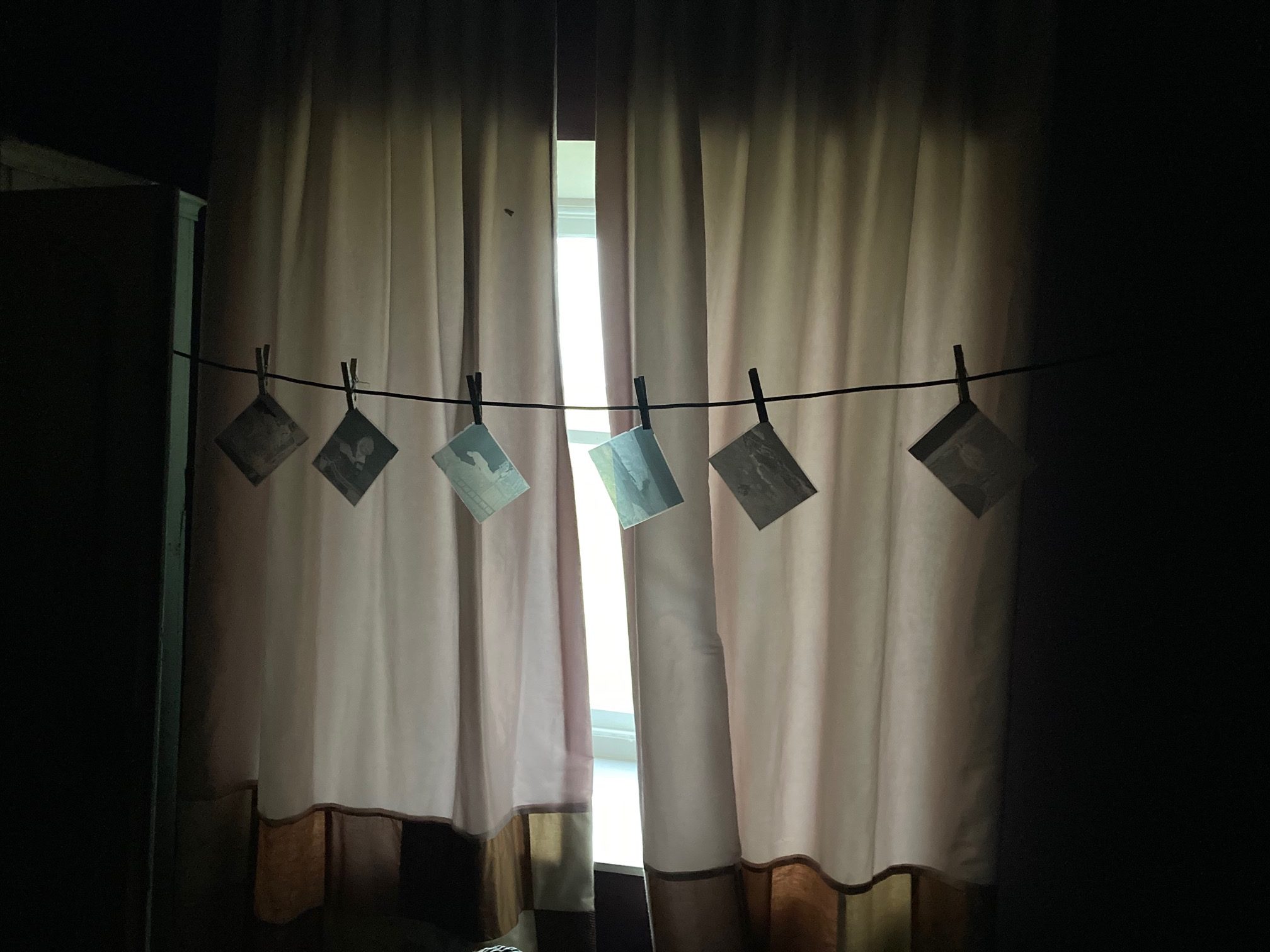
Roman Cavallin: Work in progress
– KATHLEEN MISSOTTEN (Belgium)
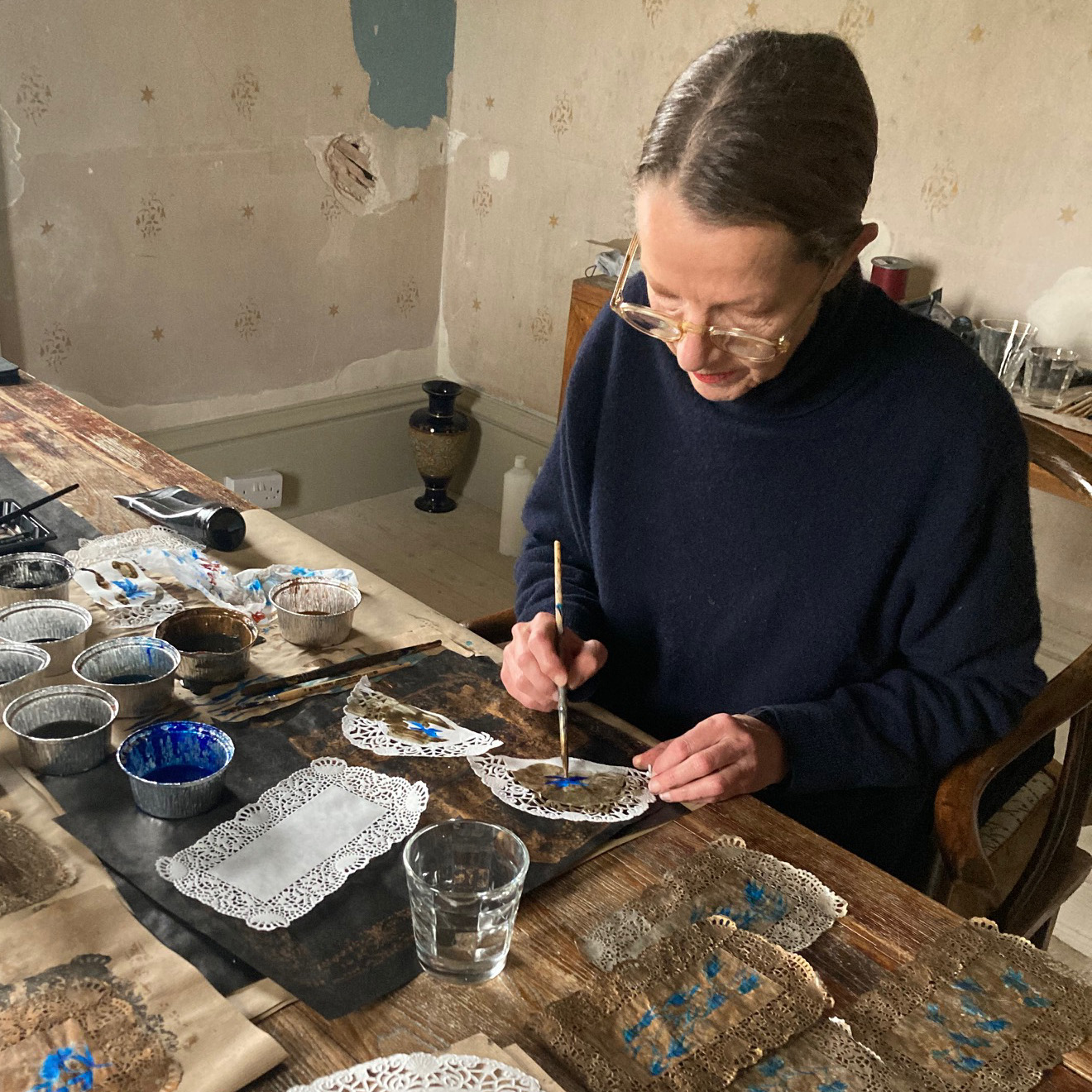

– LAURA SIMONATI (Italy/Belgium)
“I am an Italian illustrator and author based in Brussels. I love to experiment and create illustrations for different purposes and I enjoy exploring the world through my practice. I am deeply fascinated by Outsider Art, vernacular graphic design and everything dealing with Folklore.”
“I am very interested in the theme of the 2024 residency at Breachacha Embrace (these are extremely important and urgent issues), and I think it is also very stimulating to be able to interpret it through my own artistic practice.”
– BÉATRICE JOSSE (France)
In collaboration with NATALIE TAYLOR (Scotland)

Mushroom Spores
As a curator, writer and critic, Béatrice Josse develops multidisciplinary programmes at the crossroads of the visual arts, performance, dance, writing and design. Trained in law and art history, her career has led her to rethink curatorial forms as much as institutions and collections.
As director of the 49 Nord 6 Est Frac Lorraine in Metz, Béatrice Josse initiated a remarkable collection focusing on immateriality, performance and reactivation, which was widely distributed in Europe and Latin America. A pioneer in questioning gender, she helped to feminise the collection and to accompany the programming of international artists with events rooted in the region (festivals, critics’ residencies, scientific and philosophical conferences, etc.). At the MAGASIN des horizons in Grenoble, she instilled collective, performative and vernacular artistic practices that could prove therapeutic for the institution from 2016 to 2021.
Her research now focuses on more collective practices linking art/ecology/society, education and transmission. She teaches at Hear/Mulhouse as part of a Master’s degree in Renovating Design.
